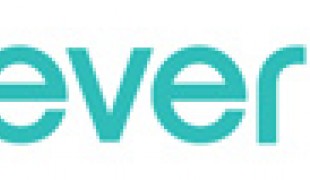- 2932
- 232
- 5
- 5
- 0
- Help Ukraine
About the solution
When Jessica Barker's five-year-old daughter was diagnosed with a rare congenital heart disease (hypoplastic left heart syndrome), she felt that raising a child with additional needs made her feel "isolated", since she struggled to find people who understood what her and her family were going through.
As other moms and their children were having play dates, going to baby groups and things, Jessica was at home with her baby connected to an oxygen tube. This was so far removed for the experience of the majority, that she lingered to find someone near her who understood what she and her family were going through, and who could just meet up for a coffee and a talk.
This is where she found that something was missing, as she knew that they could not be the only one's feeling like this in the world. And just like that, the seed was planted!
She began searching for Facebook groups related to her daughter's disease, but the only one's that she could find, were too "clinical", and a lot of people on them weren't from the same place as she was.
With that being said, she started Friendili, an app to help people caring for children with health conditions to make connections. This app allows parents to find friends for them and their children, and by toggling in accordance with location, interests, and the health journeys your family is on, they can connect with people who understand and who are near them.
This app also allows families to celebrate their wins, ask for help, or support to get through the day.
You can find Friendili app for Android and iOS.
Story adapted form https://www.bbc.com/news/uk-england-birmingham-53361549
This solution shall not include mention to the use of drugs, chemicals or biologicals (including food); invasive devices; offensive, commercial or inherently dangerous content. This solution was not medically validated. Proceed with caution! If you have any doubts, please consult with a health professional.
DISCLAIMER: This story was written by someone who is not the author of the solution, therefore please be advised that, although it was written with the utmost respect for the innovation and the innovator, there can be some incorrect statements. If you find any errors please contact the patient Innovation team via info@patient-innovation.com
-
-
400
-
0
-
4868

Clevermind, a dementia friendly interface for dementia patients created by a caring son
COMMUNICATION: Communicating, whether by speaking, listening, or other means
CAREGIVING
Social interaction
Dementia (Alcoholic Dementia, Vascular Dementia)
App (Including when connected with wearable)
Difficulty concentrating or making decisions
Social withdrawal or isolation
Loss of interest or pleasure in activities (anhedonia)
Promoting self-management
Building Supportive Community Relationships
Promoting inclusivity and social integration
Enhancing Mental Health
Improving Speech and Communication
Raise awareness
Caregiving Support
General and Family Medicine
Internal Medicine
Neurology
United States
-
-
-
421
-
0
-
4358

iCan- a father's drive for his daughter's independence from her autism diagnosis.
CAREGIVING
Social interaction
Autism
App (Including when connected with wearable)
AI algorithm
Strategy/Tip
Restoring mobility
Promoting self-management
Promoting inclusivity and social integration
Improving Speech and Communication
Preventing (Vaccination, Protection, Falls, Research/Mapping)
Raise awareness
Caregiving Support
Child and Adolescent Psychiatry
General and Family Medicine
Neurology
Pediatrics
Psychiatry
Canada
-
-
-
828
-
0
-
17961

Proloquo2Go – App to help people communicate
CAREGIVING
COMMUNICATION: Communicating, whether by speaking, listening, or other means
Social interaction
Paralysis
Autism
Cerebral Palsy
Brain Stroke
Brain Injury (Abscess, Brain Barrier Defect, Brain Contusion, Brain Hemorrhage, Brain Edema)
Assistive Daily Life Device (to help ADL)
Assistive Technology access
App (Including when connected with wearable)
Tremors
Muscle cramps or spasms
Difficulty coordinating movements
Muscle weakness
Difficulty speaking or understanding speech
Trouble with fine motor skills (e.g., writing, buttoning clothes)
Twitching or involuntary movements (myoclonus)
Acquired language impairment (Aphasia)
Promoting self-management
Managing Neurological Disorders
Building Supportive Community Relationships
Promoting inclusivity and social integration
Improving Speech and Communication
Caregiving Support
Clinical Pathology
Medical Genetics
Neurology
Pediatrics
Rheumatology
Netherlands
-
 en
en